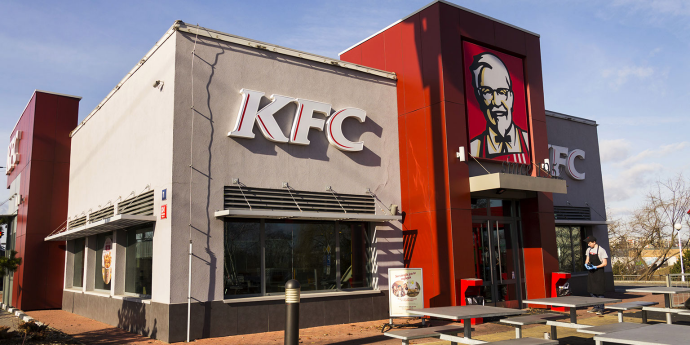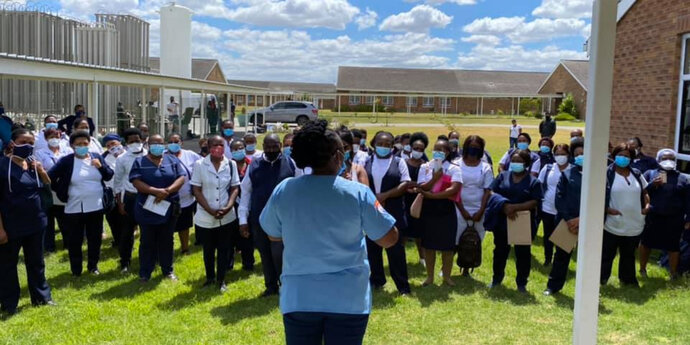In recent months, South African consumers have become all-too familiar with product recalls issued by some of the country’s best-loved food brands. Thankfully not every incident of food contamination kills or grabs the headlines like listeriosis did in 2017 and 2018, but failures in surveillance remain a common and increasingly worrisome phenomenon in South African food production.
The growing rollcall of recalls makes grim reading: in September, a major producer issued a voluntary recall of batches of its popular carbonated fruit drinks after it detected the presence of a toxin, “above the permitted tolerance”. Shortly afterwards, another producer had to recall apple juice products after it was discovered that a limited quantity of the juice concentrate supplied to them contained elevated levels of the same toxin. More recently, that same food producer had to recall batches of its peanuts and raisins and cashew nut products following “low-level” contamination by a bacterium typically passed on to humans through animal products like chicken and eggs. Other incidents reported over recent months include the recall of canned vegetable products and the deaths of five children related to contaminated noodles. South Africans should not accept these failures as a normal part of manufacturing.
There are human and economic costs to not doing enough
The primary concern for food manufacturers should, of course, be the health and safety of consumers. In South Africa’s developed manufacturing industry, any deaths should be unacceptable.
But over many years of visiting firms and factories, and speaking with factory supervisors and managers, it’s become easy to see how quality control can be discounted. Corners are cut amid the pressure cooker of production. Quality becomes just another box to be ticked. This is not unique to South Africa. The documentary American Factory gives an excellent real-world view into the real tension that plays out between production and quality control inside many manufacturing facilities.
It’s usually only when a company’s bottom line is imperilled that leadership sit up and take notice – and that bottom line does take a beating. A new study examining the economic fallout from the listeriosis contamination of meat products – notably polony – over 2017 and 2018 looks specifically at how a product harm crisis (PHC) affected consumer behaviour over the first three months after the product recall. PHCs are broadly defined as incidents that attract wide and negative publicity to a brand because of a product defect. The study compares sales figures on each of the 89 days after the product recall in 2018 to the sales on the exact dates in 2017, prior to the incident.
Specifically, the study used point-of-sales data from a major retailer, as well as demographic data off that retailer’s loyalty programme. In this way, the research forms a very reliable picture of exactly how the listeriosis incident affected the sales of not just the brand item involved, but also that of related meat products, other products from that brand, and the products of rival brands.
Perhaps unsurprisingly, the study found a significant drop in sales of all polony products across the industry. Likewise, there was a negative spill-over effect onto other products from the implicated brand, where sales also dropped – signalling a general loss of consumer faith in that business.
Quite apart from the devastating loss of life or health impacts, this and other studies indicate that PHCs pose a great risk not just to a firm’s performance, but to the economy of the sector at large; the damage is by not confined to the implicated firm. And as incidents of PHCs accelerate, as they seem to have in South Africa in recent months, the impact may well be compounded. This is something food manufacturers should consider individually and as a collective, as their fortunes are intertwined, for better or worse.
This is particularly true in food manufacturing where mishaps get more scrutiny and bad press. And consumers have long memories, as illustrated in the case of the 2008 poisoned infant milk formula scandal in China, where, 10 years after 300,000 babies fell ill and six died, Chinese parents had still not regained their trust in Chinese formula products.
The best defence is a good offence
In response to the most recent incidents, the South African Bureau of Standards has called for the introduction of comprehensive food-safety management systems, and increased training and certification. Food manufacturers and the industry can be proactive in this regard. For one thing, quality controls should not be looked at as expensive and dispensable extras to the production process or simply as boxes to be ticked, but as an essential and cost-saving principle and value.
Moreover, firms can adopt a culture of quality and quality control all along their supply chains and entire production process. This culture must be imprinted – and reinforced daily – on the minds of everyone from managers to floor workers. Imagine if, in all the cases cited above, problems had been detected earlier – as they probably should have been – before valuable person-hours and other resources (including water) had been ‘wasted’.
Food manufacturers should recognise that a lack of any culture of quality just makes for bad business, and can leave a bitter taste that lingers long in consumers’ mouths.
Hamieda Parker is a chemical engineer by training and an associate professor at the University of Cape Town Graduate School of Business (UCT GSB), where she lectures on operations and supply chain management. She is the author of a new study on the economic impacts of the listeriosis contamination of meat products in 2018.








































